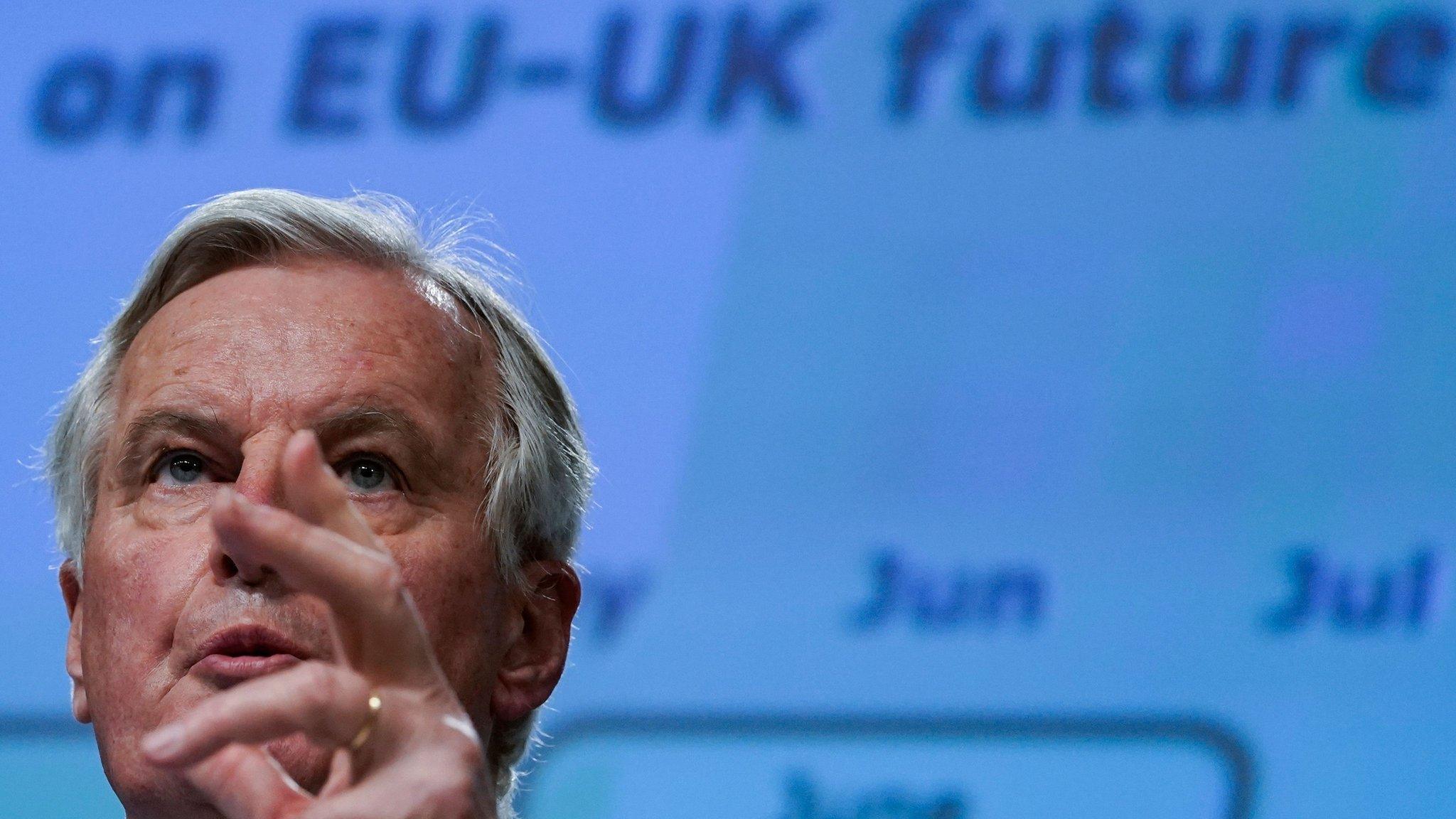Brexit: EU and UK negotiators resume trade talks in London
- Published
- comments
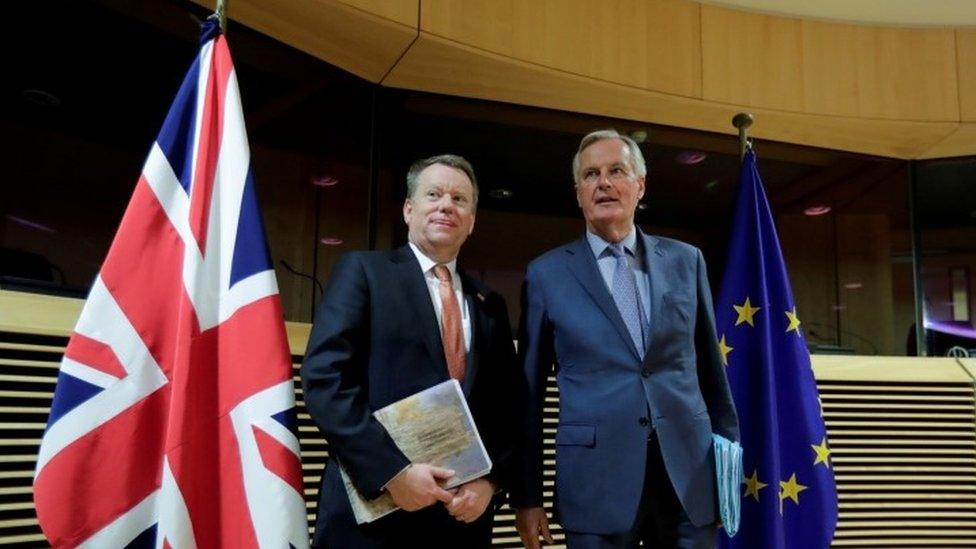
Michel Barnier (right) is returning to London for the talks with Lord Frost
EU and UK officials have resumed trade talks in London at the start of another key week for the negotiations.
They are trying to bridge what the two sides have said are still significant differences on fishing quotas and competition issues.
Boris Johnson said on Sunday that the "outlines" of an agreement were clear and a deal was "there to be done".
But he has insisted the UK is prepared to leave the single market and customs union on 31 December without agreement.
The EU's chief Brexit negotiator Michel Barnier and his UK counterpart Lord Frost are in a race against the clock to conclude a future economic partnership in time for it to come into force when the post-Brexit transition period ends on 31 December.
The UK left the EU on 31 January but continues to follow the bloc's rules until the end of the year.
If there is no agreement at that point, trade between the two will default to World Trade Organization (WTO) rules - with tariffs set to be introduced on many imports and exports, which could push up costs for firms and consumers.
Both sides say they want to avoid this although the EU has said it will not do a deal "at any price".
The UK has said it is prepared to accept what it calls "Australian terms" - which it conceives as limited sector-by-sector agreements mirroring those the EU currently has with Australia. But it would mean the UK would largely be trading on WTO rules.
Mr Johnson told the Associated Press on Sunday that a more comprehensive deal on trade in all goods and services, based on the EU's agreement with Canada, was "there to be done".
"I've always been a great enthusiast for a trade deal with our European friends and partners," he said."The broad outlines are pretty clear, we just need to get on and do it if we can."
Following a phone call with Mr Johnson on Saturday, European Commission President Ursula von der Leyen said some progress had been made in recent weeks after the EU agreed to discuss specific legal texts.
But she said "large differences" remained over the question of access to British fishing waters from 2021 and regulations on workers' rights, environmental protection, and state aid designed to maintain a "level-playing field".
Ahead of his visit to London, Mr Barnier tweeted, external that any deal must "respect the interests and values of the EU and its 27 member states".
The meeting comes as the House of Lords look likely to vote down controversial clauses in the government's Internal Market Bill.
The clauses would give ministers powers to override parts of the Brexit withdrawal agreement reached with the EU, including obligations on state aid rules.
US President-elect Joe Biden has previously been openly critical of the bill, fearing it could lead to a hard border between Northern Ireland and the Republic of Ireland - and has warned this could be a deal-breaker for any US-UK trade deal.
Speaking to the BBC, Environment Secretary George Eustice said the bill was "all about protecting peace and stability" arguing that it ensured Northern Ireland businesses have "unfettered access to GB markets".
But Conservative peer Michael Howard is opposed to the bill, alongside Labour's Charlie Falconer, who told BBC News the government should "stop digging".
He argued that the bill, would push the EU into having to close the border between Northern Ireland and Ireland to protect the bloc's single market.
Ireland's Foreign Affairs Minister Simon Coveney described Mr Biden as "a real friend of Ireland" and added that his election would give Downing Street "pause for thought... to ensure that the Irish issues are prioritised as we try to close out this phase of the Brexit negotiation".
While Labour leader Sir Keir Starmer told LBC a Biden presidency would bring "a degree of clarity" to the Brexit talks. He said UK-EU negotiations would be helped by Mr Biden's clear stance on the Northern Ireland peace process.
Office for Investment
On Monday the prime minister announced that he was establishing a new Office for Investment to encourage investors to do business in a post-Brexit UK.
"Our departure from the European Union is not and has never been about walling our islands off from the outside world, rather, it is about building bridges to friends, allies and trading partners old and new in every corner of every continent" he wrote in a LinkedIn article, external.
He said the Office for Investment would be "a targeted, agile organisation designed for the fast-moving society in which we now live, and a great big flashing neon sign that advertises both our openness to the world and our desire to do business with it."

ESCAPE MIX: An hour of uplifting tunes to help you escape from the day to day stresses of life
ASK MARTIN LEWIS PODCAST: Talking you through the latest financial help for Lockdown 2.0

- Published18 December 2020
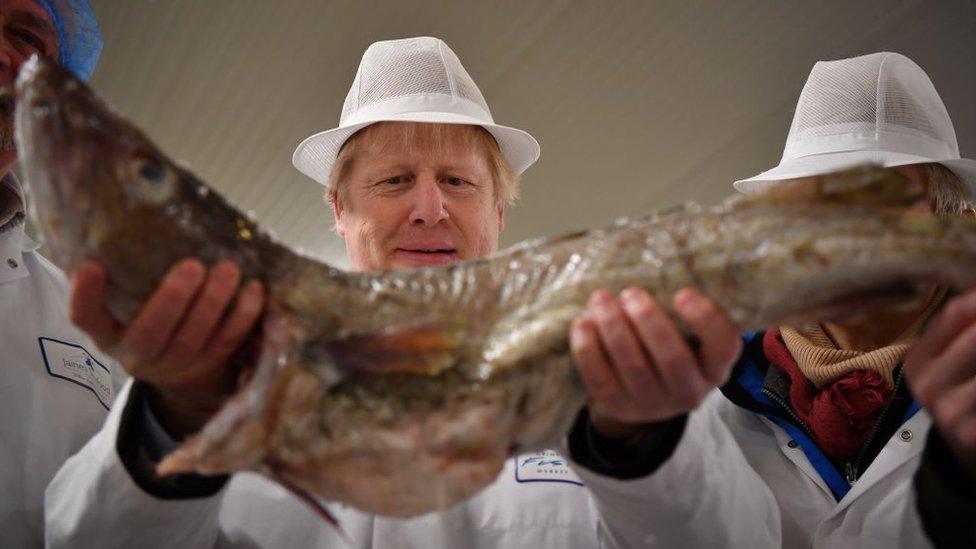
- Published7 November 2020
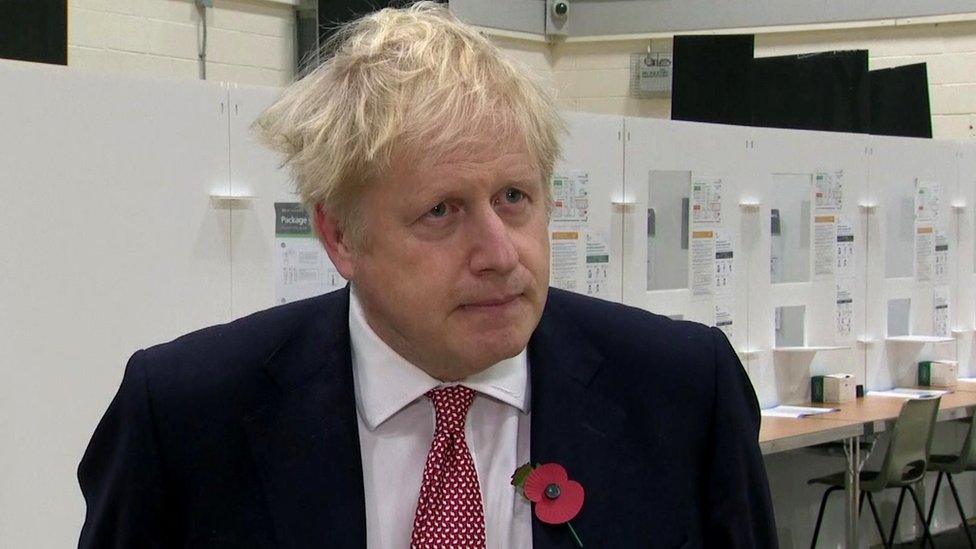
- Published5 November 2020
- Published13 December 2020
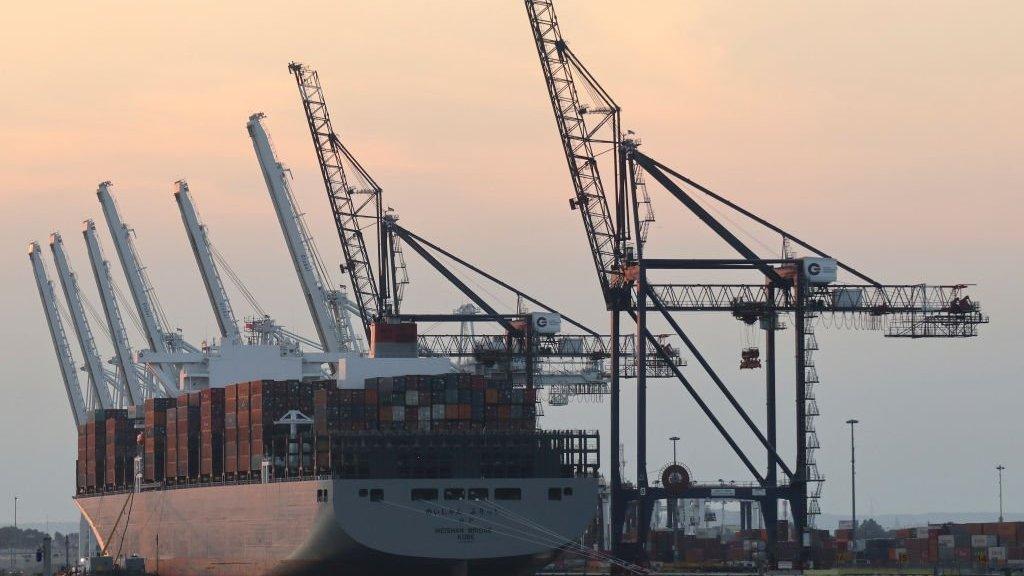
- Published27 February 2020
